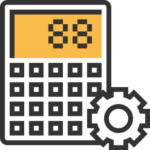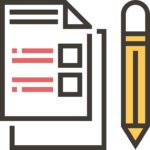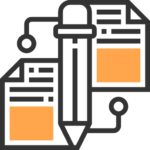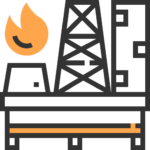alloyselect.com is the cloud-based pipeline corrosion software with capabilities for materials selection, alloyselect.com can be used to calculate corrosion rates in pipelines. alloyselect is a corrosion software that helps you evaluate the corrosion rates of carbon steels used in pipelines; it also allows you to select corrosion resistant alloys for pipelines in sour service. alloyselect.com also helps you verify that pipeline materials are compliant with international standards like NACE MR0175, and API 5L.
pipeline corrosion can be calculated with alloyselect.com, the software has a user-friendly interface to enter parameters such as:
- Temperature
- Pressure
- H2S content (%mol or ppm)
- CO2 content (%mol or ppm)
- Chloride ionic content
- Alkalinity
- Corrosion inhibitor availability
alloyselect.com calculates the pipeline corrosion rates for uninhibited and inhibited conditions. The user can define the design life and estimate corrosion allowance.
alloyselect.com is a corrosion software with capabilities to calculate the CO2 corrosion rates for carbon steel, this corrosion software also implements the NACE MR0175 limits for corrosion resistant alloys and incorporates the requirements of other international stabdards such as ISO 21457, Norsok M001 and DNV RP F112. alloyselect.com is a corrosion software with a difference:
- No software installation, alloyselect is a corrosion software that is cloud-based, run over chrome, firefox or safari.
- Compatible with Windows, Max and Linux, alloyselect is a corrosion software that does not need installation.
- Accessible from mobile and tablet, alloyselect can be accessed from any device with an internet connection.
- There are no updates to install. There are no installation packages for alloyselect, just subscribe and use.
- Low cost compared to other corrosion software, alloyselect is a corrosion software with most competitive price.
- No long term commitments, subscription from just 1 day, immediate access, no emails to send for special codes.

Evaluate
with alloyselect you can use data from reservoir and operation to check if carbon steel is suitable for your asset. alloyselect uses an Artificial Intelligence algorithm to determine sour service severity, corrosion rates and allowance, pH and other threats to the integrity of your asset.

Select
alloyselect uses AI algorithms to identify suitable materials from a library of more than 300 different carbon and low alloy steels, cast irons and corrosion resistant alloys. alloyselect library of codes and standards is continuously updated to comply with regulatory requirements.

Verify
alloyselect helps you verify a selected material complies with one or more industry standards. AI algorithms analyse chemical, mechanical and processing data from Material Certificates to verify compliance with code and standards such as NACE MR0175, API 5CT and API6A

AI Technology
Artificial Intelligence technology implemented for materials selection decision making. alloyselect helps you evaluate, select and verify materials.

Multiplatform
you can access alloyselect from any online device. Use mobile, tablet or desktop to calculate corrosion rates and select materials.

Continuously updated
alloy select is continuously updated to make sure all AI decisions are in accordance with the latest revisions of codes and standards.

Email and Print Reports
prepare reports to validate and document your materials selection. analize materials certificates and export your results.

Secured Data
we do not store your personal and project data . alloyselect AI algorithm is based on secure cloud technology protecting your valuable information.

Technical Support
we have a live webchat to support you and guide you through your materials selection. Our team of materials engineers is here to help you.

Onshore
using AI, alloy select helps you select materials for production and injection wells, pipelines and processing facilities.

Offshore
alloy select incorporates offshore standards like DNV RP F112, UK HSE guidelines to prevent chloride induced stress corrosion cracking.
